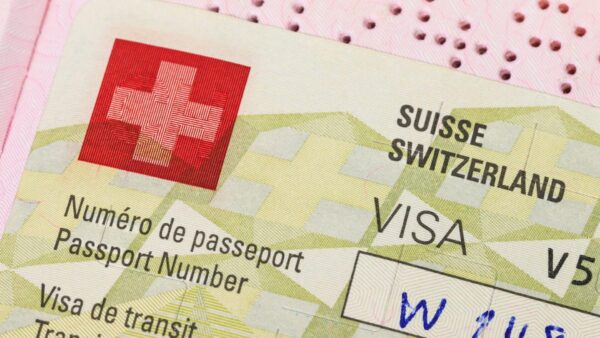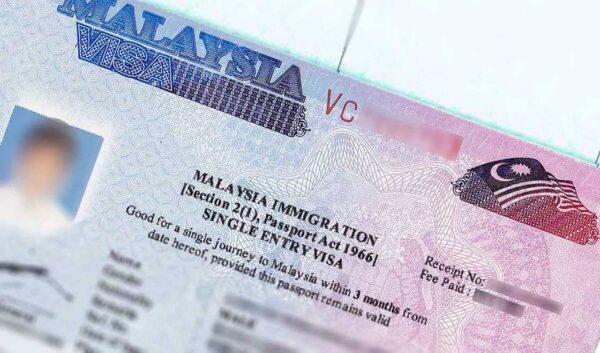Dreaming of making Croatia your forever home? With its breathtaking Adriatic coastline, fascinating history, and Mediterranean way of life, Croatia is almost an irresistible destination for expats looking for somewhere to settle permanently. Getting PR in this beautiful country is like entering into a world of scenic views, food options, and a warm community. Be it the allure of the busy cities, stunning islands, and the peaceful countryside, Croatia has the best quality of life. But how do you make this dream a reality? Knowing the eligibility rules and the application steps is crucial to getting permanent residency. This knowledge allows you to enjoy all the wonderful things the country offers while enjoying the lovely life by the Adriatic Sea.
Understanding Permanent Residency in Croatia
Third-country citizens may be eligible for stalni boravak, or permanent residence permit in Croatia if they have been continuously residing in the nation for a few years while holding a valid temporary residence permit. A third-country citizen is a person who is not a citizen of the European Union or the European Economic Area (non-EU/EEA citizens). It used to be very easy to determine who was eligible for permanent residence in Croatia, but nowadays, the requirements differ based on your situation. Some groups of third-country citizens are eligible for permanent residence on more beneficial terms.

Who is Eligible?
Third-country citizens may be eligible for Croatia permanent residency if they are:
- A family member or partner of a Croatian citizen who has been given temporary residency for a continuous four-year period in order to reunite with family or form a life partnership.
- A member of the Croatian people, whether or not they are citizens of another country, can provide proof of their status through a certificate from the state administration body. This applicant must have been granted temporary residence for three years in a row and returned with the intention of settling down permanently in the Republic of Croatia.
- A minor child who has been given temporary residence for a continuous three-year period to reunite with their family. One parent must have been awarded a long-term or permanent residency.
- The individual had been in refugee status for a minimum of ten years and had been granted temporary residency for a continuous duration of three years. A certificate from the housing-related state administrative authority should serve as proof of this.
- He/she was born in the Republic of Croatia and has resided on its territory ever since, but for legal reasons beyond his control, he/she lacks a regulated residence.
Ways of Obtaining Permanent Residency in Croatia
Here are the ways a foreign national can become a permanent resident of Croatia:
Through Temporary Stay
According to the Aliens Act, a third-country national may be granted temporary residency for the following reasons:
- Family reunification,
- Study,
- Secondary education,
- Research,
- Life partnership,
- Work,
- Humanitarian reason,
- For other purposes,
- Residence of digital nomads.
A Croatian residence permit is typically granted for a maximum of one year. A legal residency and work permit allow temporary residence for work-related activities. In addition, any third-country national who's from a visa-free country for the Republic of Croatia may apply for a temporary residence permit at any Croatian embassy or consular office or a police station or administration, depending on where they plan to live.
Furthermore, an international traveler who needs a visa to enter the Republic of Croatia applies for a temporary residency permit at the Republic of Croatia's diplomatic mission or consular office. But how do you know if you qualify for a temporary residence permit? Here are the conditions a third-country national must fulfill:
- Provide evidence of the reason for temporary residence.
- Have a valid travel document
- Possess health insurance
- Proof of clean criminal record
- There are no restrictions on entering the Republic of Croatia, living there, or receiving an SIS warning that would prevent entrance.
- Not endangering public health, national security, or public order.
Through Long-term Residency
Long-term residence may be issued to a third-country citizen who got temporary residence, subsidiary protection, or asylum for five years until the application time. Even if a citizen of a third country has been gone from the country multiple times over five years and up to ten months, or once for up to six months, they will still be considered to have lived continuously in the Republic of Croatia.
Furthermore, the Ministry of the Interior makes the final judgment on the application once the third-country national submits it to the appropriate police administration or police station based on where they now reside. A third-country national can qualify for long-term residence if:
- The applicant has a valid travel document
- Has health insurance
- Has health insurance
- Has means of financial stability
- Proficient in the Croatian language and the Latin alphabet
- Does not endanger national security or public order
Documents Required For the Application of Croatia Permanent Residency
Here is the permanent residency checklist for a successful application:
1. A Valid Claim
If you match the criteria given at the beginning of this article, you are likely eligible to apply for permanent resident status unless you are a volunteer or student or have been away from Croatia for an extended period.
Time spent on a volunteer or student permit is not considered permanent residence in the same way that other types of temporary residence are.
2. Completed application form
When you begin the process, MUP will provide you with the application. The form for citizens of third countries is available here.
3. Birth Certificate
Children are largely subject to this requirement. If you are asked to produce a birth certificate, it needs to be certified, translated into Croatian and apostilled.
4. Croatian Language Proficiency Test
When applying for permanent residence, nationals of third countries must take a language test at the Faculty of Humanities and Social Sciences. One can find the faculty in Osijek, Split, Pula, Zadar, Rijeka, or Zagreb. This is a B1-level test. Ensure to bring a copy of your passport to the faculty so they can set up the test.
Furthermore, you will be required to fill out an application and pay the exam fee at a nearby post office or bank. Once you have made the payment, bring your application and proof of payment back to the faculty. A test date will be assigned to you at that time. The test with the faculty is only offered once a month. Therefore, you need to plan it at least 10 days in advance.
5. Proof of Health Insurance
If you've come this far, you already have this. You must be current on payments and present a copy of your HZZO card.
6. Proof of Financial Means
This condition varies according to your current situation, and proof May include bank statements. According to the MUP, these are the minimum amounts you must have, regardless of your family's circumstances. Having stated that, wait until the MUP specifies exactly what you must supply for the situation before taking any action.
7. Copy of Valid Passport
Although they occasionally produce copies at the MUP, it is advisable to have a copy of your passport on hand on the day you submit your application. Don't forget to bring a copy of your Croatian identity card.
How to Apply for Croatia Permanent Residency
Here's the application process for third-country nationals:
1. Get in Touch with the MUP Administration Office.
You must go to the police office closest to your place of residence in order to apply for permanent residence. You might need to schedule an appointment before visiting some police stations. We suggest giving them a call and requesting a service desk that assists foreigners. State your intention to apply for permanent residency. They'll provide you with the most recent details. But once you call, you'll know for sure if you need to call the cops or not. There will always be at least two, if not more, in-person meetings with the police for applications for permanent residence.
2. Prepare the Application
Prepare your application according to your situation. The necessary documents have been mentioned above. They include the application form, health insurance, police certificate, proof of financial means, etc. Depending on your case, you may be asked to submit additional documents.
3. Submit the Application
When you've completed all of the necessary paperwork, go to the police station and submit it. The police will inform you if any extra documents are required for your situation. You will have to wait after they accept your application for processing.
4. Interviews
When applying for permanent residency, citizens of third countries typically must be present in person at MUP at least once, but occasionally up to three times. Your nationality and reason for permanent residency determine everything. You will eventually receive a summons by mail or a phone call inviting you to an interview (or several). They will go over your documents and ask you questions such as these during the interview:
- Are you married?
- Do you work?
- Do you have a life partner?
- How do you make ends meet, and how have you done so since moving to Croatia?
- Do you have children?
- What makes you wish to reside in Croatia?
- Describe your family, including their residence and occupation.
5. Get Residence Card (boravišna iskaznica)
When you receive the fantastic call indicating your permit has been accepted, you will be summoned to the station. You will receive the paper “Rješenje o odobrenju stalnog boravka.” It is a decision on the authorization for permanent residency. Payment slips will be given to you to take to FINA, bank, or Hrvatska pošta for payment. Once you have proof of payment, you will return it to the police.
In addition, you have eight days from the time your permanent residence is approved to file a residence card request. Once you present evidence of payment, your signature and fingerprints will be collected. After that, you'll receive a white card that will serve as your temporary ID. Please do not misplace this, as you will need to carry it with you to obtain your new ID. At this point, they will order your ID, which will take three weeks, using the same procedure as with temporary.
6. Enjoy Your Stay
Yay! You're here to stay! As a result, you get more benefits. You can leave Croatia for longer periods without losing your status if you have a permanent stay.
Application Fee & Processing Time
The processing time for Croatia permanent residence application varies from one to eighteen months, depending on nationality, method of application, and completeness of documents. On the other hand, the application fee is €100 ($103)
Can My Croatian Permanent Residency Status Be Terminated?
The permanent residence status of foreign nationals can be terminated in numerous situations, including the following:
- A citizen of the third country has requested that their permanent residence be terminated.
- Third-country nationals are prohibited from entering and staying in Croatia.
- SIS has issued a warning with the intention of prohibiting the entry of a third-country national.
- Third-country nationals have relocated out of Croatia.
- Third-country nationals have lived outside of Croatia for over a year.
- Termination may be necessary to maintain public order, national security, or public health.
Conclusion
Get your permanent residency in Croatia and enjoy a unique blend of Mediterranean lifestyle, stunning natural beauty, and access to the EU. By navigating the application process, preparing the necessary documents, and meeting the eligibility criteria, foreign nationals can make Croatia their forever home and enjoy its many benefits.
















